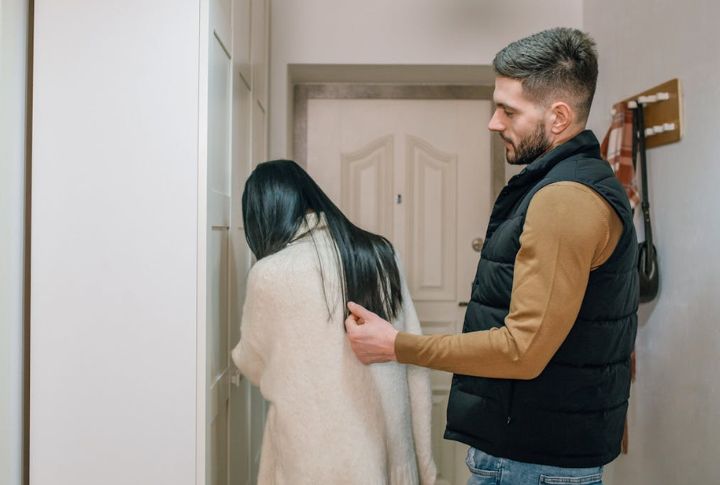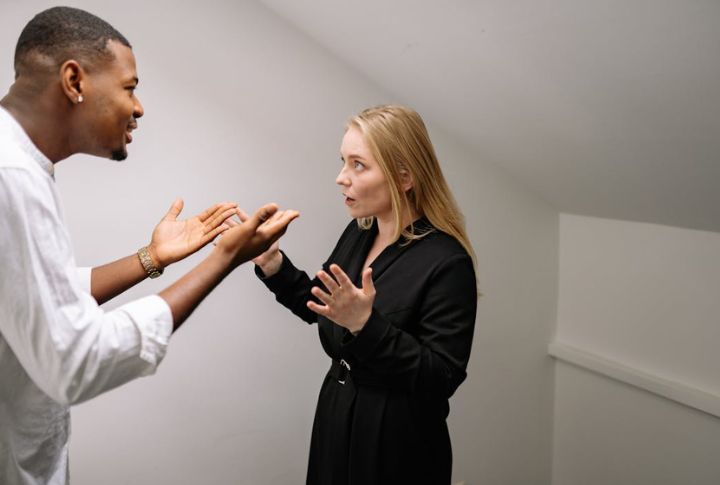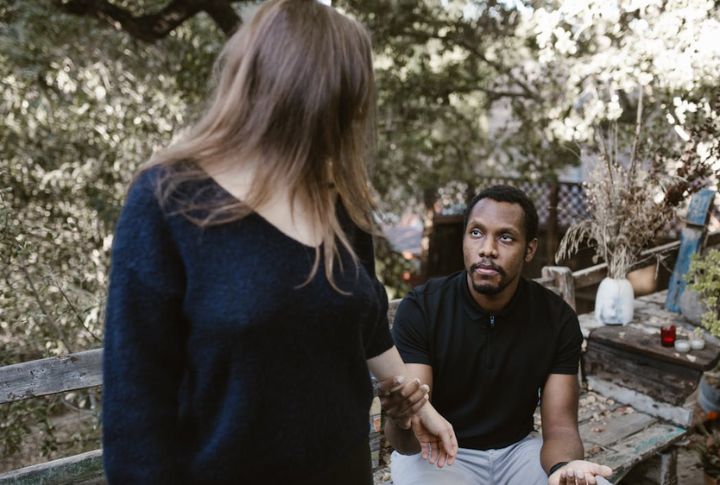
Love can feel steady on the surface but complicated underneath. Some of that weight might come from the past, long before the relationship began. Early emotional wounds don’t always fade—they shift into habits that follow into adulthood. This listicle lays out ways unhealed childhood experiences may quietly shape dynamics between partners without anyone realizing it.
Struggling To Trust Your Closest Partner

Childhood abuse disrupts the foundational trust we need for adult relationships and makes deep affection feel “off.” It can cause trust issues, such as wanting to check your partner’s phone “just in case.” You can start healing with small acts, such as sharing past experiences and holding hands without fear.
Shutting Down Emotionally During Arguments

Growing up being shut down by older people can damage your emotional expression as a grown-up and prompt dissociation under stress. In short, you’ll prefer to avoid confrontation because silence feels safer than potential conflict. You might even drift off while being self-absorbed in your thoughts mid-argument.
Constant Fear Of Abandonment

Does a delayed text from anyone or your partner feel like a divorce? Do you repeatedly double-text to reassure yourself? If yes, you may be suffering from anxious attachment, which therapists link to fear of rejection as a child. You can start self-therapy by asking, “How am I processing this minute-long silence, and why?”
Believing Love Is Earned, Not Given

If love was conditional growing up, adults may develop the belief that they must “perform” to be loved. This mindset can lead to overcompensation in marriage, resulting in imbalance and burnout. Even worse, you may tie your self-worth to how much you “do” or “give” in the relationship. When this happens, you start seeing compliments as rewards.
Struggling With Emotional Intimacy

Vulnerability isn’t always weakness. Sadly, emotional closeness feels terrifying or unfamiliar because childhood neglect or abuse made you suppress your emotions to stay safe. You might even freeze or “bottle up” when your partner asks how you feel.
Sabotaging Intimacy Without Realizing It

Struggling with emotional intimacy is one thing, but sabotaging it is a worst-case scenario of the former. Since calm feels strange to trauma survivors, they subconsciously do things that take them to the familiar terrain of negative emotions, like starting a random, “valid” fight after a great weekend without knowing why.
Overreacting To Small Conflicts

If tiny disagreements blow up in your head like you just had a major fight, you have leftover childhood trauma. You can often trace heightened emotional reactivity in adults to their experiences as kids. Breathing deeply can physically calm a brain wired for crisis, but it’s not a long-lasting solution.
Resentment Over Past Hurts Resurfaces Often

You can unconsciously project unprocessed, unresolved trauma onto current partners. For instance, imagine your partner forgetting an errand you sent them, and you blurt out, “You always do this,” when it doesn’t happen often. Then, your partner becomes a mirror for the pain someone else caused, such as childhood feelings of being ignored.
Constantly Seeking Validation Even In Unhealthy Ways

Kids who faced emotional neglect growing up often become adults who crave external validation. Attachment studies link childhood trauma to lower self-worth. When this happens, you attach your self-worth to the opinion of other people and subconsciously go the extra mile to get someone to commend you.
Feeling Unworthy Of A Healthy Relationship

Do you know anyone who has sabotaged good relationships or settled for toxic ones? It’s not necessarily their fault. Early trauma can make you think that being treated well is “too good to be true.” You’ll even unconsciously downplay your partner’s love because you don’t believe you’ve “earned” it.
People-Pleasing At The Expense Of Self

Extreme external validation can make you a people pleaser who wants others to see their good parts, even at their expense. In marriage, this can lead to self-neglect and burnout because you’re often at the giving end. You might plan a vacation that your partner would love, while secretly hating it yourself.
Inability To Set Or Respect Boundaries

Do you say “yes” to something you dislike to avoid guilt? Do you feel uncomfortable when your partner sets healthy boundaries? Does a simple “I need space” feel like a personal attack? If all these are “yes,” your childhood might have had blurred or violated boundaries, making it difficult to establish them in adulthood.
Expressing Your Needs Clearly Is Difficult

One of the significant causes of boundary issues is an inability to adequately express one’s needs. Let’s use space as an example. Trauma survivors may hint at what they want rather than demanding directly because they don’t know how to. Or worse, they never ask for space because they didn’t think it was a valid request.
Holding Yourself Emotionally Hostage

You wait for your partner to say the right thing before allowing yourself to feel calm. Their tone, timing, or facial expression becomes the cue for how safe it is to relax. This isn’t about communication—it’s emotional conditioning from a time when love felt conditional and unpredictable.
Assuming The Worst

Your brain begins to anticipate betrayal, even during minor disagreements. A simple “We need to talk” puts you on edge, and you start rehearsing defensive responses before the conversation even starts. Likewise, your assumptions damage trust, and you escalate issues unnecessarily.
Carrying Unspoken Anger Into Conversations

Trauma can lead to suppressed emotions that leak out as passive aggression or outbursts. This hidden anger often triggers a flood of long-held resentment and resurfaces in disagreements where it doesn’t belong. For instance, “You left the lights on” becomes a war about never feeling heard.
Fear Of Rejection Influences Your Choices

Psychologists maintain that rejection in formative years often becomes a core wound that haunts adult relationships. For those who faced it early on, making a choice or expressing their wants feels risky, even if it’s a harmless preference. They might even give up on a dream opportunity because of what someone else thinks.
Confusing Control With Love

Authoritative parents who showed care through excessive control may pass it on to their kids. When they get married, they may either micromanage or over-depend on their partners. For instance, you might keep tabs on them not out of jealousy, but out of “protection.”
Avoiding Joy Out Of Habit

If joy was rare or short-lived growing up, adults can learn to treat happiness as suspicious. In marriage, this can look like bracing for something to go wrong after a good day or downplaying moments of connection. It’s not negativity—it’s protection built on past unpredictability.
Being Too Clingy

Depriving a child of emotional comfort never ends well. It can lead to an excessive need for reassurance. Imagine demanding explanations and texting “Are you mad at me?” after their “Hey” goes unreplied for hours. They can unknowingly overwhelm or exhaust a partner trying to meet their constant emotional needs.

